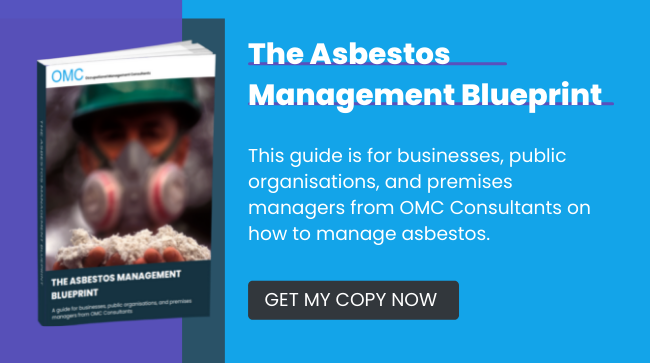Asbestos is a genuine and enduring hazard in many UK workplaces, although there are procedures in place to manage risks and reduce the chances of exposure. The question is, who is responsible for managing the risk of asbestos? UK law is clear regarding who is responsible for asbestos removal and about the responsibilities of employers and asbestos duty holders. However, the regulations also state that other people in the workplace must cooperate in order to ensure all requirements and procedures are complied with.
This is outlined in the Health and Safety at Work Act 1974, which despite not mentioning asbestos directly, states that employees must take care of their own health, collaborate with policies and regulations, and avoid interfering or misusing any tools or equipment given to them for health, safety, and protection purposes.
This means that employees also have a role in managing the asbestos risk in their workplace, and for keeping themselves and their colleagues safe.
Training and information
If asbestos is unexpectedly discovered in the workplace, this can be very worrying and cause a great deal of anxiety. If legitimate staff concerns aren’t taken seriously, stress and anxiety over asbestos can lead to reduced motivation and increased employee turnover. In turn, these factors can contribute to these in turn lower efficiency and productivity. Additionally, employees may worry unnecessarily about asbestos -related risks if they are not adequately informed about the genuine risk level in their place of work.
Managers and supervisors can have a positive influence on staff by addressing overall key safety areas.
Many staff concerns are due to a lack of awareness regarding asbestos and the methods needed to safely protect or remove it. For example, it is a common misconception that, like a radioactive substance, the mere presence of asbestos is a fatal health risk, when in fact it’s only a problem if asbestos-containing materials are disturbed.
If you notice growing concerns among staff, you may want to hold a meeting where their concerns can be openly discussed. Be prepared to answer questions like “can you sue your employer for asbestos exposure?”.
Clear and accurate information can help mitigate unfounded fears. At OMC Consultants, we deliver tailored asbestos awareness training courses and have seen how much of a difference it makes to have reliable information at hand.
You should also have a clear asbestos health and safety policy in place, outlining who is responsible for what actions. For instance, you must explain that it is the employee’s duty to notify management of any suspicious materials and to report defects in equipment, including PPE.
Policies should clearly state the procedure to follow if asbestos exposure is suspected. Here, it’s especially important to make sure the information is consistent with what employees learn during training.
Asbestos Risk Assessment
An asbestos management plan should be underpinned by a thorough risk assessment conducted by competent persons such as OMC Consultants. An experienced asbestos consultant can advise you on the most appropriate training and information-sharing strategies for your employees, and the right risk-mitigating actions to take if asbestos-containing materials are found in your workplace.
Find Out More
As an accredited asbestos management consultancy, at OMC Consultants we can help you improve compliance through surveys, training, and asbestos management plans. In considering employing an organisation to carry out testing and inspection activities, you need the confidence that the laboratory operates within defined procedures and to established standards. In doing so, you can limit the potential for risk. OMC is a UKAS accredited laboratory – UKAS registration number 4243 and has enjoyed continued accreditation since 2009. Get in touch today to speak with one of our team in confidence about the right actions for your business.
Image Source: Pexels

